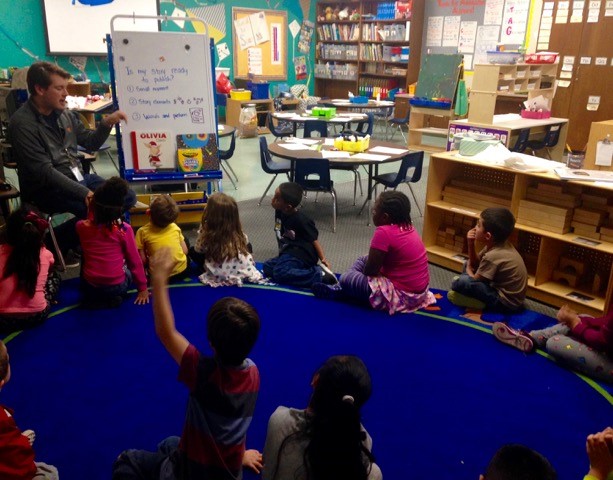By: Ryan Taylor, ELCA Legislative Intern
 |
Photo Credit: U.S. Department of Education |
In this election cycle full of hyper-partisanship, campaign insults, and the perceived inability of the public to agree on a variety of topics, there remains one issue on which the American people can come together: the economy. According to a recent survey conducted by the Pew Research Center, 84% of registered voters cite the economy as an issue “very important” to their vote in the 2016 election. In fact, the economy topped Pew’s list of results as the single most important issue to voters in this campaign.
If this is the case, how, then, do we improve our economy and in turn make it work for everyone? Perhaps one way to advance our economic progress is to properly invest in and increase access to quality education.
In 2010, President Obama declared in a speech that, “education is the economic issue of our time. It’s an economic issue when the unemployment rate for folks who’ve never gone to college is almost double what it is for those who have gone to college. Education is an economic issue when nearly eight in 10 new jobs will require workforce training or a higher education by the end of this decade. Education is an economic issue when we know beyond a shadow of a doubt that countries that out-educate us today, they will out-compete us tomorrow.”
President Obama then suggested that, “The single most important thing we can do is to make sure we’ve got a world-class education system for everybody. That is a prerequisite for prosperity. It is an obligation that we have for the next generation.”
The ELCA’s social statement “Our Calling in Education” states that we minister in two ways: to educate people in the Christian faith for their vocation, and to strive with others to ensure that all have access to high-quality education that develops personal gifts and abilities and serves the common good.
Education issues are also critical this November. In the aforementioned survey conducted by Pew, 66% of registered voters said education is “very important” to their vote in the 2016 election. Throughout the remainder of this election cycle, we must encourage candidates up and down the ballot to support quality education for all, with a particular emphasis on youth.
Early childhood education lies at the core of this issue. Studies consistently show that high-quality education for children before the age of five sets them up for future success. For example, the HighScope Perry Preschool Study found that “individuals who were enrolled in a quality preschool program ultimately earned up to $2,000 more per month than those who were not.” Furthermore, the study found that “young people who were in preschool programs are more likely to graduate from high school and own homes.”
Because children rapidly develop social and cognitive skills during the earliest stages of their lives, it is imperative that every child has access to high quality preschool education. Building upon President Obama’s Preschool for All proposal and in accordance with our Lutheran calling in education, we must advocate for proper funding and must work to expand access to universal preschool.
While great progress has been made in this arena, there is still much work to be done. There are still six states that do not provide state funding for pre-Kindergarten programs (pre-K). Just under half (46 percent) of age-eligible children attend pre-K across the country, and only 4 percent of 3-year-olds and 28 percent of 4-year-olds attend state-funded programs. We must continue to push our candidates for office, as well as current legislators, to provide adequate federal funding to states that already provide pre-k programs. Furthermore, we should push for new federal funding to states that do not provide pre-k programs.
This November, with so much at stake, let us renew the fight for quality education for all God’s children. Universal preschool is a bold first step toward a bright future not only for students across the country, but also for our economy. If we truly value a strong education system and a strong economy, we must work to elect public officials who value educating our children in the most critical stages of social and cognitive development and onward. We can participate in this work knowing that access to quality education is a core value in our shared Lutheran heritage.
(Photo Credit: U.S. Department of Education)
